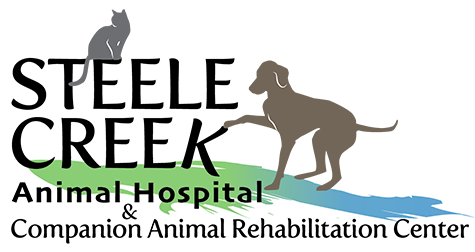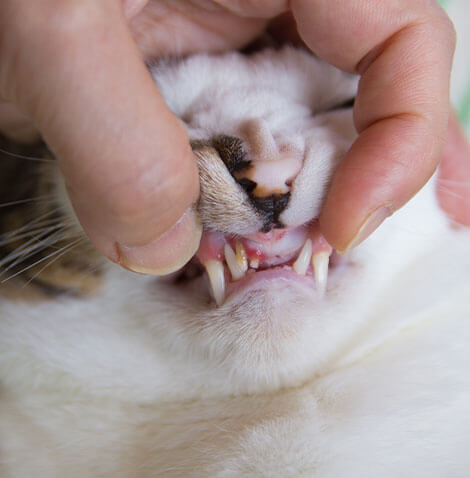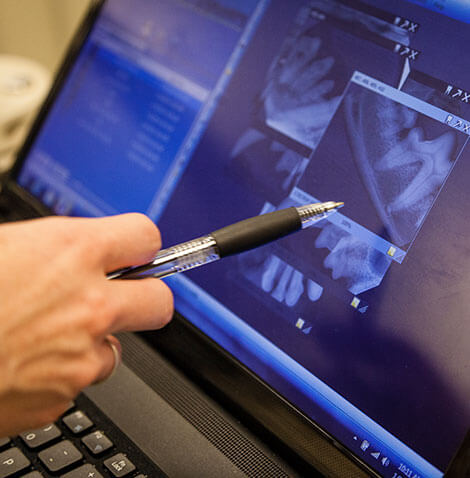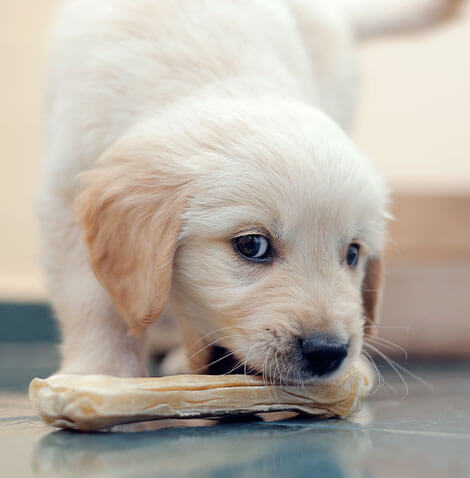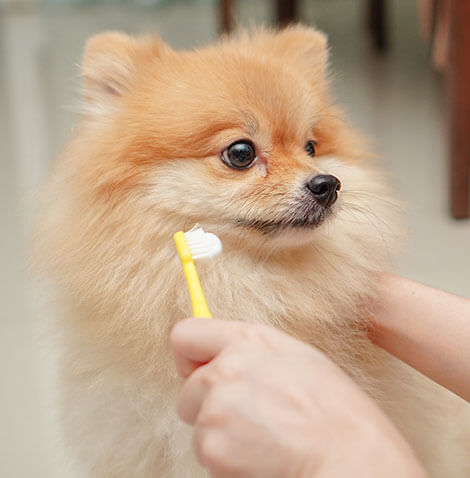The Importance of Cat and Dog Dental Care in Charlotte, NC
At Steele Creek Animal Hospital, we are firm proponents of cat and dog teeth cleaning to prevent periodontal disease and the life-limiting effects it can have on your pet. It is estimated that more than 80% of dogs and 70% of cats develop dental disease by age 2. Despite how common this condition is, it can be prevented with a dental care regimen at home and periodic dental evaluations and teeth cleanings at our hospital. We offer a full range of services to help with diagnosing, treating, and preventing oral diseases, and can give pet owners a wealth of information about managing their pets’ oral care at home.
Having good dental hygiene is essential for a good quality of life, and can add years to your pet’s lifespan.
Call us today at (704) 588-4400 to schedule a dental exam.
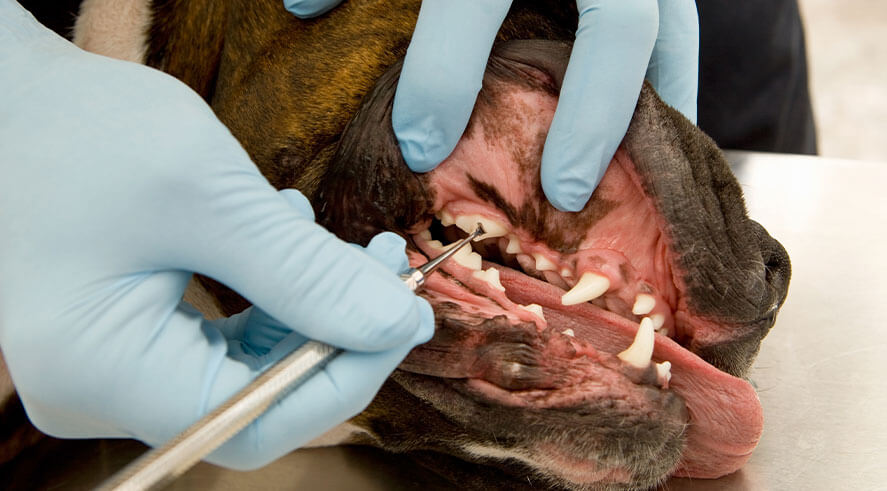
Your Pet’s Dental Experience
All teeth cleanings are performed with our patients under general anesthesia. This allows our team to be as thorough as possible, while also ensuring your pet’s safety and comfort during the procedure. To make sure the anesthesia will be safe for your pet, we first perform a pre-anesthetic exam and lab work, then closely monitor the anesthesia, and your pet’s vitals, for the duration of their teeth cleaning. Your pets dental experience is quite different than your own.
Teeth cleaning procedures typically include:
- A full oral exam while your pet is under anesthesia
- Scaling above and below the gum line to remove calculus buildup
- Full-mouth digital X-rays to assess for and/or diagnose periodontal disease
- Tooth enamel polishing
- Irrigation to rinse away debris
- Fluoride treatment
- Application of OraVet to deter future tartar buildup
- Tooth extractions if required, plus the necessary pain relief and antibiotics
Additional Aspects of Dental Health
Periodontal Disease
Signs of Periodontal Disease in Pets
Periodontal disease is infection and inflammation of the periodontium, the tissues that surround and support the teeth. Although it may not seem like a huge problem at first, periodontal disease can lead to tooth loss, bone loss and more serious health problems. The heart, liver and kidneys are especially susceptible to the spread of oral bacteria. Our doctors will do a preliminary check of your pets mouth during routine exams. These are some signs to be aware of:
- Bad breath
- Drooling
- Dropping food
- Difficulty chewing
- Pawing at face
- Red, swollen gums
- Discolored teeth
- Drop in appetite
Dental Radiology
Digital Dental Radiology to Diagnose Periodontal Disease and More
Our animal hospital uses advanced digital X-ray technology to perform a detailed assessment of your pet’s oral health so we can diagnose conditions including tooth root abscesses and fractures, cavities, facial bone tumors, bone loss or weakness, tooth resorption, and more. The use of digital dental radiography significantly improves the quality of the x-rays and reduces the patients time required under anesthesia for evaluation.
Puppy and Kitten Dental Care
Puppy and Kitten Dental Care
Your pet’s dental care program should begin when they're young. Every puppy and kitten exam includes a thorough dental evaluation, where we check for retained or broken baby teeth and congenital bite issues. We also strongly recommend introducing your puppy or kitten to teeth brushing so they have more time to grow accustomed to the procedure, which should become a lifelong routine.
If you need help brushing your pet’s teeth, we’ll be happy to show you how to do it safely and thoroughly. Also, ask us about our other dental care options for dogs and cats--we have many other products that can benefit their oral health.
Home Care
Home Care
Caring for your pet's teeth at home is essential to keeping buildup and bacteria at bay. We recommend brushing their teeth once daily, if possible, or several times a week. Be sure to use a toothbrush and toothpaste approved for cats and dogs. It's best to start your pet young so they can grow accustomed to teeth brushing. Additionally, we offer other dental products such as dental chews and treats, oral wipes, and tartar-control diets that you can incorporate into your pet's dental care regimen.
